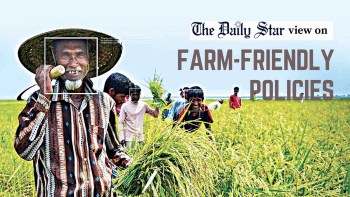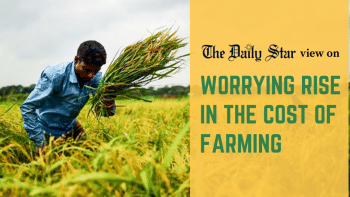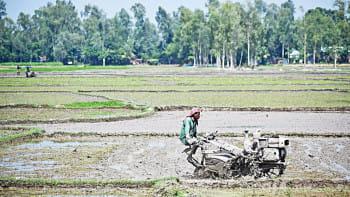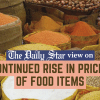Inflation eating into daily meals

Bangladesh, for quite some time, has been enduring record-breaking inflation, putting ordinary citizens in a bind. Daily essentials have become increasingly difficult to purchase, as has been illustrated in a recent report by the World Bank. It suggested that 71 percent of families are being affected by rising food prices. This means that out of 4.10 crore families, almost 2.91 crore are reeling from food insecurity, which is a matter of grave concern.
In November, food inflation surpassed 12.5 percent—the highest in a decade—while overall inflation stayed above nine percent. If this trend of inflation and increasing living cost continues, there is a significant chance of more families falling into poverty. The WB report states that, except Pakistan, inflation was significantly lower in other comparable countries including India, Sri Lanka, Afghanistan, Bhutan and Nepal. Sri Lanka, which suffered from a great financial crisis last year, has been able to significantly bring down food inflation, from a staggering 58 percent to just 0.3 percent in December. The question is, why have we failed to take similar measures?
While Covid and Russia's war in Ukraine have certainly exacerbated the situation, there are other systemic issues that, if resolved, can bring some relief. For instance, despite Bangladesh being one of the top 10 countries in the world in terms of producing crops, deserved benefits have eluded marginal farmers and consumers. This is largely due to the unscrupulous middlemen, hoarders, and importers who often manipulate prices. Corruption, mismanagement, and flawed policies at the relevant institutions are also to blame. Unfortunately, despite repeated calls to address these issues, the authorities have failed to do so. Such negligence is preventing us from being self-sufficient in food.
Also, our neighbours suffered the same external issues that we did, but they demonstrated a better recovery. This, again, implies that policy failure has been at play here. Therefore, we urge the government to address all the underlying reasons behind food inflation through a well-formulated action plan. Otherwise, people will keep thronging the TCB trucks to manage daily meals.


 For all latest news, follow The Daily Star's Google News channel.
For all latest news, follow The Daily Star's Google News channel. 










Comments